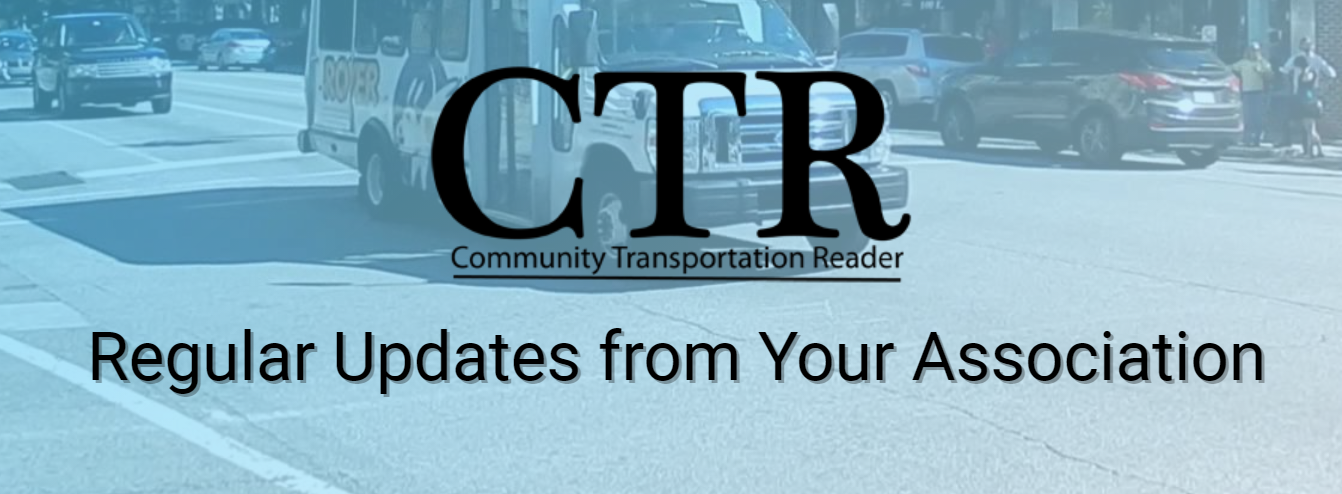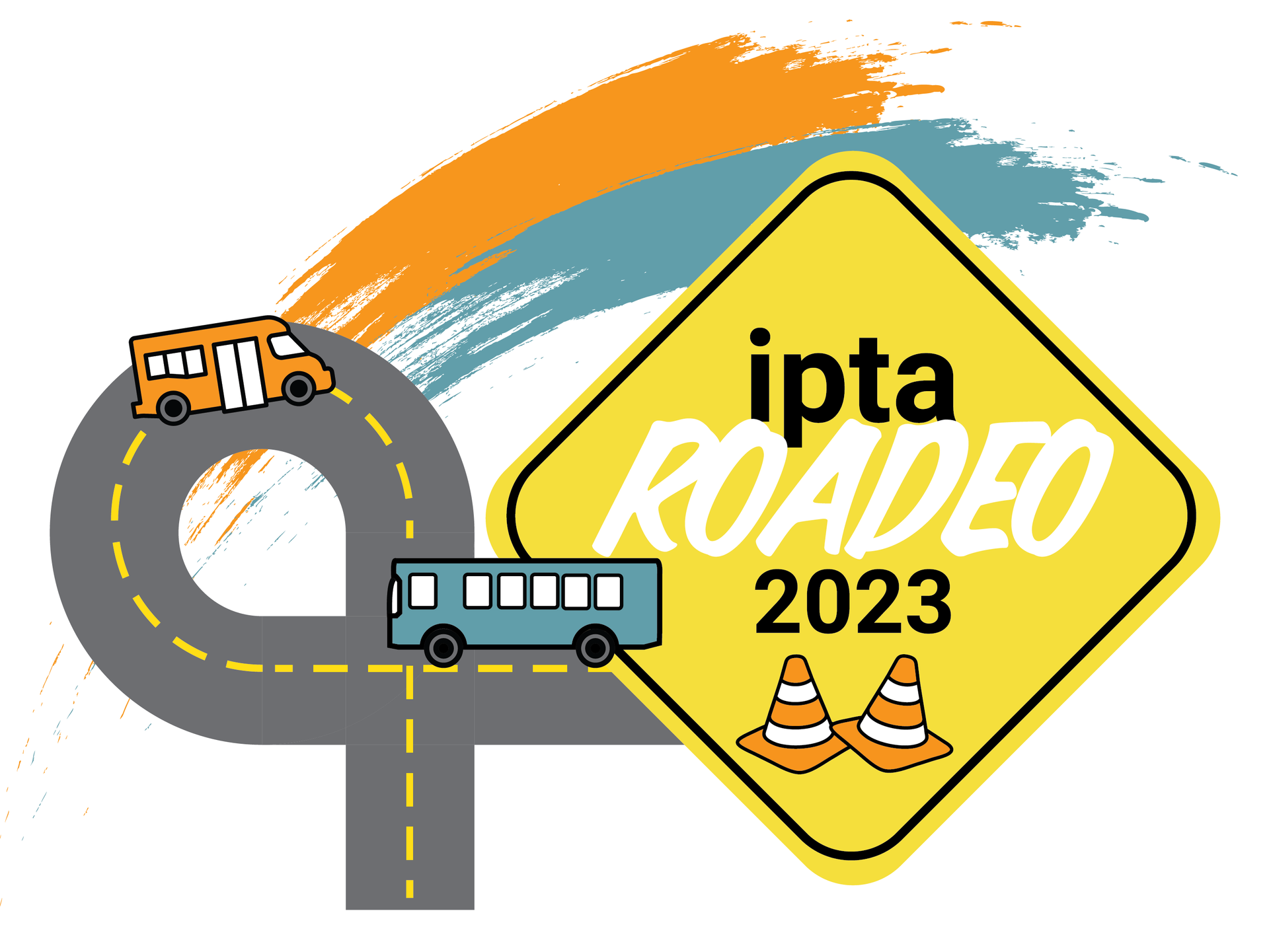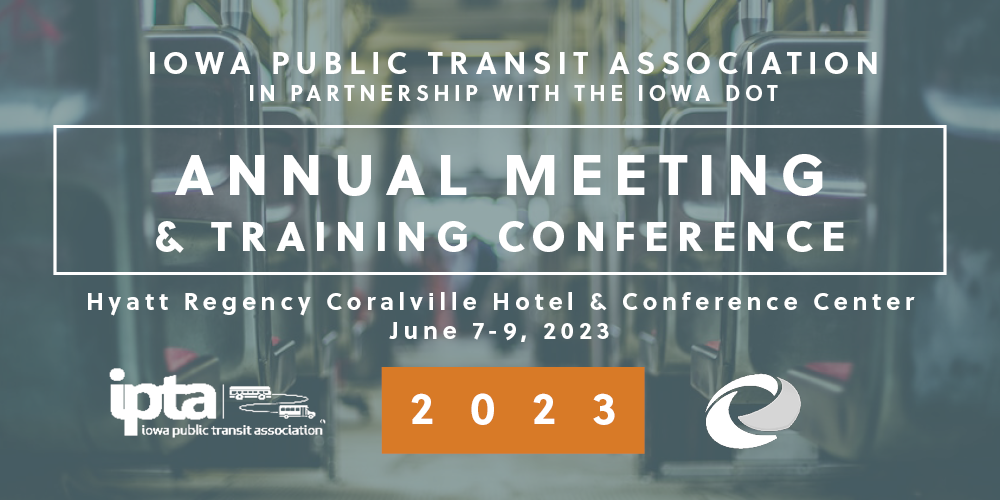RESOURCES
NEWS

Continued coordination of state-funded transportation programs will minimize duplication of services, and help to ensure maximum service delivery from limited funding. Public transit is a vital link in the success of other state-sponsored programs. Service availability allows increased access to government-funded, early childhood education programs. It also allows many elderly and disabled Iowans to remain living in their homes, thereby reducing the need for expensive, government-funded institutionalized services. The State of Iowa ranks first in the nation in number of residents 85 and older, third for those 65+. Projections indicate this number will continue to rise. Efforts to mainstream persons with disabilities also continue. The quality of life in Iowa would be greatly diminished without the basic access that transit provides for all citizens. The Iowa Public Transit Association believes the following state actions are needed to address public transit needs: Support innovative financing options for bus and bus facilities replacement. Separate transportation services from the Medicaid provider tiered rate and allow services to be billed directly for better coordination. Sustain Rebuild Iowa Infrastructure Fund (RIIF) Funding to $1.5 million.

Register now! On September 22, 2021 at 2pm (CT), HIRTA will be hosting a Roundtable to discuss Transit Driver shortages and Incarcerated Reentry. How can Public Transit be part of the solution for those re-entering the workforce after incarceration, and tap into this pool of potential employees to fill positions in the ever-declining transit driver workforce? Join us for a roundtable discussion on ideas, concerns, and opportunities for how to move these conversations forward. Register here: https://us02web.zoom.us/meeting/register/tZwpceiqrzwvG9FSyIjyvFJIuq76btYqT0HI?fbclid=IwAR3QergPUAbYbNH5qW8Vtb9aFbhH_HJgJxKg2jp2B4TE6ZE1vlz82aeqKnw Check out the blog that prompted this roundtable discussion: https://ctaa.org/driver-shortage-and-incarcerated-reentry-solution-for-success/?fbclid=IwAR0UoCzZNka6S5jmYcuIUhxSN8fUQQGGe39641d_k64S50noXXpGulF6EHo

Job security is a necessity to re-entering the community after incarceration, however recently released individuals often return to underserved communities and face a wide range of barriers that make successful reintegration difficult. While incarcerated, there is little control over daily life, which means individuals could become overwhelmed or unprepared with the choices and decisions being made while returning back to the community. Therefore, re-entry programs are vital to the success of employment, housing, social interaction and decision-making. Fortunately, progress is starting to be made in helping people make a successful transition into society. For example, in Iowa, they have placed Workforce Development and Iowa DOT staff within some correctional facilities to assist in preparing individuals before their release back into the community. About one in three U.S. adults, some 70 million people, have a criminal record, including those who were arrested but not convicted. These records have long-lasting consequences that can hinder a person’s access to employment, housing or a professional license. (from The Pew Charitable Trusts 5/25/21) More than half of the formerly incarcerated are unable to find stable employment within their first year of return. According to the National Institute of Justice , “an estimated 68 percent of released inmates were arrested within 3 years, 79 percent within 6 years, and 83 percent within 9 years.” These percentages showcase how most incarcerated individuals were unable to make a successful transition. The Center for American Progress indicates that in every state, African Americans are incarcerated at more than double the rate of Caucasians; on average, African Americans are incarcerated at more than five times the rate of Caucasians, and, in several states, in excess of 10 times the rate. Putting stable, well-paying jobs out of reach of many people with records, further contributes to disproportionate rates of poverty among communities of color as well as racial inequality across the nation. How can Public Transit be part of the solution, and at the same time look at tapping into this pool of potential employees to fill positions in the ever-declining driver workforce? Eliminate blanket bans that automatically disqualify workers with criminal records: Nobody knows the situation, circumstances or what caused someone to make a decision. We should not pass judgment for what is written on a piece of paper, nor should we value someone by their record – start the conversation based on their character and what they can bring to the job. Limit record information in background checks to recent, occupation-related information: Think about a questionable decision you made when you were 18 and then 10 years later that decision was still affecting your ability to secure a job? Would you want to be forever defined by that questionable decision? This isn’t an issue with the person, It is an issue with employers who will not even consider hiring someone because of their past record. Work with community leaders in rehabilitation programs: Partner with community organizations already working with incarcerated individuals. These agencies will be a great resource for any employer looking to fill-positions and assist with job placement. They can also explain the benefits, the risks, and how to mitigate them. How can transit systems overcome the following concerns Lack of trust Risk cost, including potential backlash from customers’ perception Negligent Hiring Safety Factors Perceptions/Acceptance by other employees The truth is, every hire is a risk. How many non-incarcerated employees have been untrustworthy while at work, had attendance issues or had to be disciplined? Many individuals are accountable to their Probation Officer for gaining employment, holding onto their job and avoiding recidivism. The majority of incarcerated individuals are grateful to get back into the community and work hard not to violate their parole. For any due-diligence methods, as an employer you should work with your legal counsel and insurance carriers to put necessary policy in place, and the success or failure of hiring those reentering the workforce depends on how leadership promotes the program. Removing barriers to employment for those with criminal records would not only help transit systems fill driver positions, but also create jobs for those who need to work and improve racial injustice, allowing everyone to become productive members of society. We can’t continue to leave people behind in a world that wouldn’t give them a chance to be successful. As community and public transit professionals, we need to change the conversation, reframe our mindset, bring the right people to the table and create a successful solution! Julia Castillo, Executive Director Heart of Iowa Regional Transit Agency (HIRTA)







